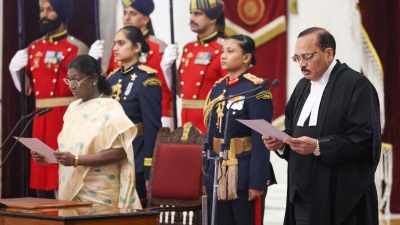Jurisdiction no ground for stopping payout: Punjab and Haryana HC to NHAI
Executing court cannot probe decree validity or office address mismatch, rules Justice Mandeep Pannu of Punjab and Haryana HC.
 The MACT, Chandigarh, had fastened liability on NHAI, Regional Office, Chandigarh, for a fatal accident in Kinnaur district of Himachal Pradesh.
The MACT, Chandigarh, had fastened liability on NHAI, Regional Office, Chandigarh, for a fatal accident in Kinnaur district of Himachal Pradesh.The Punjab and Haryana High Court Monday dismissed two revision petitions filed by the National Highways Authority of India (NHAI) seeking to block execution of a 2023 motor accident award, holding that technical objections over regional office nomenclature and territorial jurisdiction cannot be raised at the execution stage to defeat a binding decree.
Justice Mandeep Pannu, in a common order disposing of CR-7862-2025 and CR-7877-2025, upheld the district judge’s October 4 order rejecting NHAI’s objections to execution proceedings initiated by decree holders Ganga Devi and Rajesh Negi to enforce a Motor Accident Claims Tribunal (MACT) award dated October 31, 2023.
The MACT, Chandigarh, had fastened liability on NHAI, Regional Office, Chandigarh, for a fatal accident in Kinnaur district of Himachal Pradesh. During execution, the decree holders arrayed NHAI, Regional Office, Panchkula as the judgment debtor, prompting NHAI to contend that the two entities were separate Project Implementation Units (PIUs) and that execution against the Panchkula office was misconceived.
NHAI also argued that the Chandigarh tribunal lacked territorial jurisdiction under Section 166(2) of the Motor Vehicles Act, 1988, since the accident took place in Kinnaur, the claimants resided there, and the vehicle belonged to Himachal Road Transport Corporation, Shimla. It further claimed improper service in the original proceedings, submitting that a Himachal PWD official had appeared under mistaken identity, resulting in an ex parte award. An application under Order IX Rule 13 of the Code of Civil Procedure (CPC) to set aside the award is currently pending before the tribunal.
Rejecting these objections, Justice Pannu held that both regional offices function under the same statutory body governed by the National Highways Authority of India Act, 1988, and that variation in office address does not alter the legal identity of the judgment debtor. “The liability under the award remains that of NHAI as a statutory body,” the court observed.
On jurisdiction, the court reiterated that an executing court cannot go behind the decree or examine its correctness on merits, unless the decree is a nullity due to lack of inherent jurisdiction. Finding no such defect – notice had been issued to NHAI and evidence considered – the court held that challenges relating to accident location or impleadment relate to adjudication correctness, not inherent jurisdiction, and therefore cannot be reopened in execution.
Once an award attains finality, the judgment debtor cannot evade payment through technical pleas on office labels or territorial objections, the court added, terming the executing court’s findings “fully justified and in consonance with law”.
The court clarified that its observations will not prejudice NHAI’s pending Order IX Rule 13 application, which the tribunal must decide independently.






- 01
- 02
- 03
- 04
- 05

























